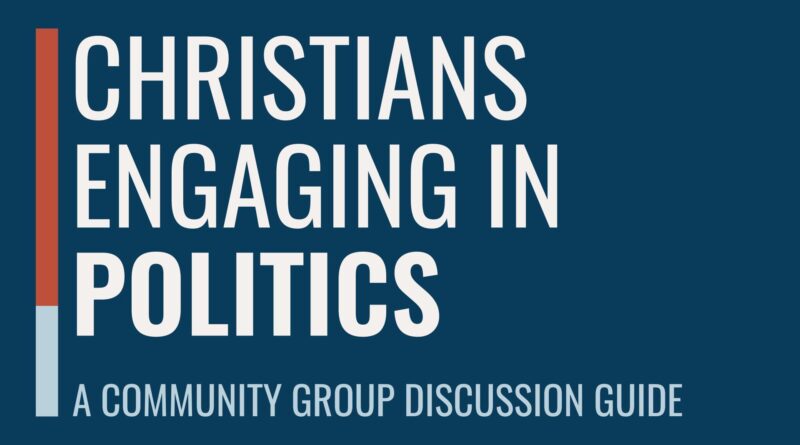Should Christians Engage in Politics, or Stay Neutral?
Should Christians Engage in Politics, or Stay Neutral?
Introduction
This Topic has been a controversial topic right from time, and we have seen, and even heard different people including religious leaders give their different opinions and perspectives as regards it. Should believers actively participate in governance, or should they remain neutral to avoid the moral complexities of political engagement?
Also, the relationship between faith and politics has long been a subject of debate within Christian communities. Should Christians engage actively in governance and political discourse, or should they remain neutral and focus solely on spiritual matters? Using Nigeria and the United States as case studies, two countries with significant Christian populations but different political and cultural landscapes. Let’s hope this article explores and clear the air as regards whether Christian engagement in politics is necessary or avoidable.
Christianity and Politics: A Biblical Perspective
In Nigeria and the USA, there are churches with doctrines that supports their members to be actively involved in politics. The Bible does not explicitly command Christians to either join or avoid politics. However, several principles guide believers on civic responsibility:
- Submission to Authority (Romans 13:1-7): Christians are instructed to respect governing authorities, recognizing that leaders are instituted by God.
- Salt and Light (Matthew 5:13-16):Believers are called to influence society positively, which may include political engagement.
- Justice and Righteousness (Micah 6:8, Proverbs 31:8-9):Scripture encourages defending the oppressed, suggesting that political involvement can be a means of advocating for justice.
These principles suggest that while neutrality is an option, active participation can also be a form of stewardship. However, various churches in Nigeria, including Foursquare, Redeemed Christian Church of God (RCCG), and Christ Apostolic Church (CAC), generally encourage their members to participate in politics as informed and engaged citizens, but often maintain a stance of non-endorsement of specific parties or candidates. They emphasize the importance of voting based on conscience and biblical values, and some actively encourage members to run for office or serve in government.
Specific Church Examples (Nigeria):
- Foursquare: The Foursquare Church emphasizes the importance of Christians participating in politics and encourages members to vote according to their conscience. They also highlight examples of Foursquare members who have served in government.
- RCCG: The Redeemed Christian Church of God has a long history of encouraging its members to participate in politics. It has also established a political arm known as the “RCCG Christian Social Responsibility” to engage with the political landscape.
- CAC: The Christ Apostolic Church, like other Pentecostal denominations, generally encourages its members to be politically active, emphasizing the need for Christians to be salt and light in the world.
Historical Context
Let’s take look briefly about how Christianity has contributed to both countries. In both Nigeria and the USA, Christianity has influenced societal values and political ideologies for centuries. In the USA, Christian beliefs have historically shaped public policies, particularly on issues such as abortion, education, and civil rights. Evangelical movements have supported political candidates and platforms aligned with their values. Similarly, in Nigeria, Christianity has played a vital role in social mobilization, advocacy, and even in the fight against corruption. Prominent pastors and Christian leaders have influenced electoral decisions and public opinions especially in Nigeria, sometimes controversial.
Arguments for Christian Political Engagement
- Moral Influence on Society: Christians are called to be the “salt of the earth” and the “light of the world” (Matthew 5:13-16). This metaphor suggests a role in preserving moral values and guiding society. In politics, this can translate to advocating for justice, integrity, compassion, and the protection of human dignity. In both Nigeria and the USA, political decisions affect millions of lives—laws on poverty alleviation, education, healthcare, and human rights all require ethical considerations. Christians, when involved, can serve as a moral compass.
- Biblical Precedents: The Bible is replete with figures who engaged with political power: Joseph rose to political prominence in Egypt, Daniel served under foreign kings, and Esther influenced a Persian king to save her people. In the New Testament, Paul exercised his Roman citizenship rights, and Jesus engaged with issues of governance, even if indirectly. These stories suggest that faith and governance are not mutually exclusive.
- Defending the Oppressed: Politics is a platform to fight for justice and uplift the marginalized core Christian principles. In Nigeria, where issues like corruption, insecurity, and inequality persist, Christian politicians can push for reforms guided by godly principles. In the USA, Christians have historically been at the forefront of movements like the Civil Rights Movement, led by Rev. Dr. Martin Luther King Jr., a Baptist minister.
Arguments for Christian Political Neutrality
- The Kingdom Is Not of This World: Some argue that Christians should remain politically neutral because their ultimate allegiance is to God’s kingdom, not to any earthly government (John 18:36). Politics, with its divisiveness and moral compromises, can sometimes taint the witness of believers. In both Nigeria and the USA, there have been instances where Christian political involvement led to disillusionment or scandal, causing many to question the church’s role.
- Risk of Idolatry and Partisanship: Political affiliation can become a form of idolatry, where believers prioritize party loyalty over biblical truth. In the USA, this is evident in how some Christians strongly align with a particular political party, even when that party’s policies contradict Christian ethics. Similarly, in Nigeria, ethnic and religious divisions can be intensified when Christian leaders show political bias, alienating other groups and causing division within the Church.
- Focus on Evangelism and Discipleship: Some argue that the primary mission of the Church is evangelism and discipleship, not political activism. Engaging too deeply in politics may distract from the Great Commission. Given the moral decay in many political systems, some Christians prefer to work outside the political sphere, serving through charity, education, and social outreach.
- Finding a Balanced Approach: Rather than choose between full engagement or complete neutrality, many believe the solution lies in a balanced, thoughtful approach. Christians should be informed, vote conscientiously, hold leaders accountable, and, when called, serve in public office with integrity. However, they must guard against political idolatry and remember that no earthly system will ever perfectly reflect God’s kingdom.
Case Study 1: Nigeria – The Need for Christian Political Engagement
Nigeria, Africa’s most populous nation, is deeply religious, with Christians and Muslims making up nearly equal portions of the population. However, religious and ethnic tensions often influence politics.
Why Nigerian Christians Should Engage in Politics
- Moral Leadership in Governance: Nigeria faces corruption, insecurity, and economic instability. Christian politicians can provide ethical leadership, promoting transparency and accountability.
- Protection of Religious Freedom: In some northern states, Sharia law affects non-Muslims. Christian political representation ensures that minority rights are upheld.
- Social Justice Advocacy: Poverty and inequality are rampant. Christian politicians can push for policies that uplift the poor, aligning with biblical mandates.
Challenges of Christian Political Engagement in Nigeria
- Tribalism and Sectarianism: Political loyalties often follow ethnic and religious lines, making it difficult for Christian leaders to unite the nation.
- Corruption Within the Church: Some Christian politicians have been implicated in graft, damaging the church’s credibility.
Despite these challenges, disengagement could lead to further moral decline in governance, and it could be disastrous, especially in a country like Nigeria.
Case Study 2: The United States – A Mixed Legacy of Christian Political Influence
The U.S. has a strong tradition of Christian political involvement, from the founding fathers to modern evangelical movements.
- Influence on Policy: Christian activism has shaped laws on abortion, religious liberty, and social welfare.
- Moral Advocacy: Leaders like Martin Luther King Jr. used faith-based principles to fight for civil rights.
- Checks on Secular Extremes: In an increasingly secular culture, Christian voices provide a counterbalance to policies that may undermine religious freedoms.
Criticisms and Pitfalls
- Partisan Polarization: Some Christian groups align too closely with a single political party, reducing their moral witness.
- Hypocrisy Scandals: High-profile Christian politicians embroiled in scandals have led to public skepticism about faith-based governance.
- Culture Wars: Overemphasis on political battles can distract from the church’s primary mission of evangelism and discipleship.
Finding a Balanced Approach
Rather than choose between full engagement or complete neutrality, many believe the solution lies in a balanced, thoughtful approach. Christians should be informed, vote conscientiously, hold leaders accountable, and, when called, serve in public office with integrity. However, they must guard against political idolatry and remember that no earthly system will ever perfectly reflect God’s kingdom.
Read Also: Mercy Chinwo and EeZee Tee Begin Peace Talks Over $345K Royalty Dispute
In Nigeria, this means encouraging competent and honest Christian leaders to step into politics without using the pulpit for partisan purposes. In the USA, it means being politically active while remaining critical of both left- and right-wing ideologies when they conflict with Scripture.
Conclusion
Christians should not abandon the political space, nor should they idolize it, because can be a powerful tool for societal transformation. In both Nigeria and the United States, the political landscape can benefit from the participation of individuals driven by values of justice, mercy, and humility. While the Church must guard its spiritual mission, individual believers can and should engage politically in ways that reflect Christ’s love and righteousness.
Content Credit | Olaoluwa Ayomide
Image Credit| watermark.org




